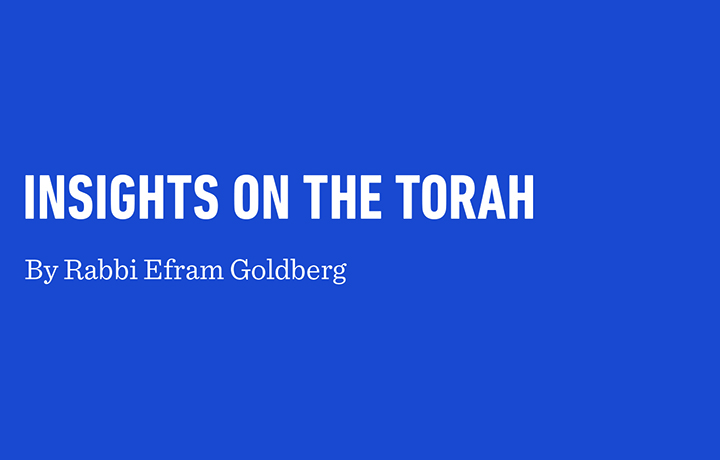The Unpromised Land
For forty years, we wandered the desert, passing through forty-two desolate locations. What was meant to be a short journey from Egypt to Israel, lasting just a few months, became a drawn-out odyssey. The original generation that left Egypt was not prepared for the challenges of life in Israel. A new generation had to emerge, and that transformation demanded forty years and forty-two stops in the wilderness.
Not all forty-two desert stops were alike. Roughly fourteen of them took place during the first year, as part of the initial journey toward the promised land. After that first year, the mission was suspended; over the next thirty-eight years of aimless wandering, we camped at twenty additional locations without clear direction and without any itinerary leading to Eretz Yisrael. We traveled in circles.
In the fortieth year, the pilgrimage to Eretz Yisrael resumed, and we advanced through another eight encampments, back on track toward the Promised Land. The fourteen stops of the first year and the eight of the final year both reflected purposeful movement toward Israel interrupted by a long, wandering detour. Two years of purposeful stride, swallowed by thirty-eight years of wandering until at last, the journey reclaimed its path.
And yet, the Torah does not restrict itself to the fourteen stops of the first year or the eight of the final year—those purposeful steps toward Eretz Yisrael. It records all forty-two, including the twenty scattered encampments across those barren years of delay. We scarcely know where these places lay, and they seem to hold no lasting religious significance. Just names written in the sand: twenty desert stretches without clear meaning. And still, each one is documented with exactness: the arrival, the departure. A ledger of movement without progress. Traveling without ever arriving. All included within Parshat Masei, a map with no end.
{Footsteps That Still Count
By recording these stops to nowhere, the Torah validates the lives of those who wandered through this unpromised land. They were a generation stripped of their future. The Promised Land was no longer theirs. They were a generation destined to perish in a wilderness, walking across dry sands carrying dreams that had long since dried up.
And yet, they lived. Their loss did not drain their lives of meaning. They found purpose in days that led nowhere and built lives rooted firmly in the fragile present. This generation had witnessed the miraculous liberation from Egypt, seen the hand of Hashem part the sea, and heard His voice at Sinai. Though barred from entering the Promised Land, they carried these moments deep within, and wove them into our national memory. For thirty-eight quiet years, without spectacle or overt miracles, they lived lives of steady faith and resolve. Even without final fulfillment, they lived lives of profound meaning.
To affirm those lives, the Torah meticulously records each stop, carefully marking every place they camped, even when no promise awaited them at journey’s end. The list of desert stops honors lives lived fully in the moment, even without the long-term goal of entering the Promised Land. Without a future to grasp, they found meaning in the present, reminding us that the moment itself holds value, not only what lies ahead.
{Doing vs. Being
Modern culture centers on goals. We are judged by how productive and efficient we are. Technology accelerates the pace of life, speeding up communication, information flow, and action. This rapid pace closes the gaps between events and decisions and compresses our sense of time. We treat time like a resource to manage instead of something to live through.
Under these conditions, life becomes an endless treadmill of constant striving. Since “being” produces no measurable output, we are hyper-focused on “doing,” on accomplishing goals, milestones, and deadlines. Our worth is tied to what we accomplish, not who we are. As we climb the ladder of success, it becomes more difficult to breathe and savor the moment. We dream of becoming something, not simply being. Goals and projects replace meaning and relationships.
{Speeding Through Destiny
Life in Israel is intensely goal-oriented—not in pursuit of personal success or material gain, but in service of our national story. We have returned to our homeland with a deep sense of historical mission, guided by a larger destiny. There is a constant drive to advance that mission, to push our shared story forward. This drive shapes our national consciousness and defines our national identity. We live with urgency and direction, always pressing toward the next stage of our historical journey, deeply goal-oriented at our core.
This national urgency is only heightened by the pace of daily life in Israel. The news cycle here moves at a relentless pace. We are currently facing a war on seven fronts, while still grappling with the challenges of rebuilding our fractured social fabric. Today’s headlines quickly become tomorrow’s history, often before we’ve had the chance to absorb or process them. Life in Israel is deeply meaningful and often inspiring, but it can also leave us breathless and dizzy.
{Writing History While Trying to Breathe
If life in Israel is shaped by national goals, the past two years have only intensified that mindset. In the shadow of crisis and war, we have worked tirelessly toward clear, urgent objectives: to remove the threats facing our country on multiple fronts and bring the hostages home safely. These goals have become the measure of our shared energy, hope, and frustration. Thank G-d, we have seen meaningful successes—but some of these goals remain painfully out of reach, stubborn, and unyielding despite our efforts. An entire nation shares common goals, even if we sometimes differ on which to prioritize.
It has become increasingly difficult to live in the moment. We are living through visionary events, with our eyes constantly fixed on the future. We know that future generations will record the very days we are now experiencing. We are aware that we are writing history—and we are willing to make sacrifices for that historical calling. Yet alongside that drive, there is value in trying to live in the moment—to “be”, not only to “do”. It means allowing ourselves to experience life as it unfolds, even as our attention is pulled toward what lies ahead. Easier said than done.
{Oasis in the Unpromised Land
Beyond its lesson about the power of “being” over mere “doing,” the story of the desert encampments carries a quiet but enduring historical resonance. For thousands of years, Jews lived in exile without hope of return. The idea of even visiting the homeland was a distant dream, beyond the reach of time and possibility. Yet during those desert stops, our people built rich lives of meaning and spirit. They clung to faith under difficult circumstances and never abandoned the dream of returning to the land.
In modern Israel, there is a tendency to undervalue this period of Jewish history. It doesn’t fit neatly into the contemporary narrative of a strong country inhabited by strong people. Especially in secular sectors, it can be difficult to reconcile the struggles of exile with the achievements of the modern state. Religious Jews find this connection more natural, as the chain of tradition and mitzvot binds past to present.
It is crucial to not sever modern Jewish history from the desert experience of the past two thousand years. The Torah records anonymous desert dunes simply because Jews lived there and infused them with meaning. Likewise, we must not overlook the many places where Jews lived during the millennia, places where they built lives of deep religious and historical meaning. We lived in the desert but built an oasis of Jewish spirit and Torah learning.
Life in the unpromised land still counts. n
Rabbi Moshe Taragin is a rabbi at the hesder pre-military Yeshivat Har Etzion/Gush, with YU ordination and an MA in English literature. His books include To Be Holy but Human: Reflections Upon My Rebbe, HaRav Yehuda Amital, available at MTaraginBooks.com.













